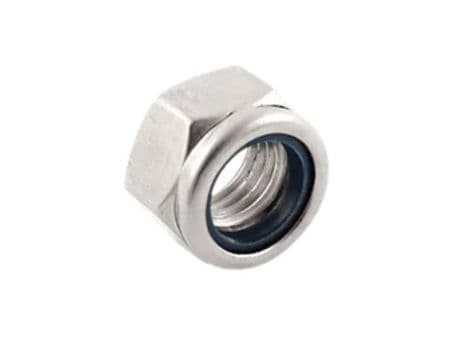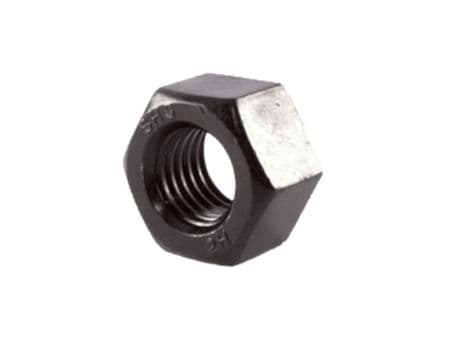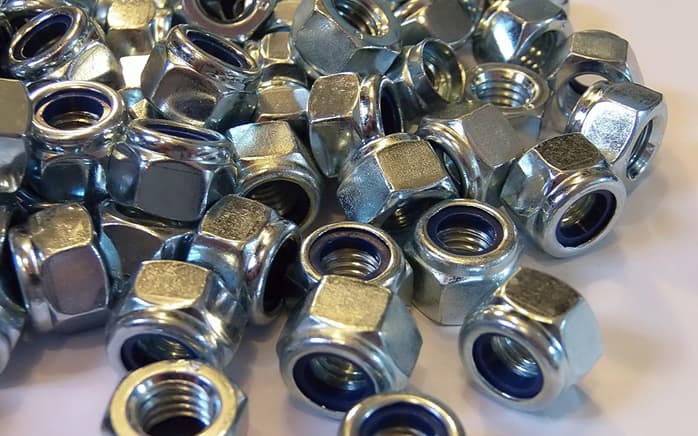| Size | M2, M2.5, M3, M4, M5, M6, M8, M10, M12, M14, M16 |
|---|---|
| Type | Nut, Threaded Rod, Washer |
| Standard | Din, Iso, Is, Jis, Gb |
| Length | 1/2″ to 2″ |
| Material | Stainless Steel, Nickel, Hastelloy, Monel, Inconel, Incoloy |
Nylock Nuts Manufacturer in India
Bhansali Bolts is a top Nylock Nuts Manufacturer in India, known for producing premium-quality locking nuts with superior performance. Nylock nuts, also known as nylon-insert lock nuts, are a type of locking nut designed to prevent loosening due to vibrations and movement. They feature a nylon collar inserted at the top, which creates friction against the bolt threads when tightened. This friction reduces the chances of the nut loosening over time, making Nylock nuts ideal for applications requiring secure fastening, such as automotive, aerospace, and machinery industries. Unlike traditional nuts, they do not require additional locking mechanisms like washers or adhesives, making them a convenient and reliable choice. As a trusted Nylock Nuts supplier in India, we offer products in various materials, including stainless steel, carbon steel, and alloy steel. These nuts are available in various materials, including stainless steel, brass, and zinc-plated steel, to suit different environmental conditions and load requirements. They can withstand moderate temperatures, but excessive heat may degrade the nylon insert, reducing its locking effectiveness. Nylock nuts come in different grades and sizes to meet specific strength and performance needs.
Type of Sub-products

Standard Nylock Nut Standard Nylock Nut
Used for general fastening applications.

Heavy Nylock Nut Heavy Nylock Nut
A thicker nut for high strength applications.
